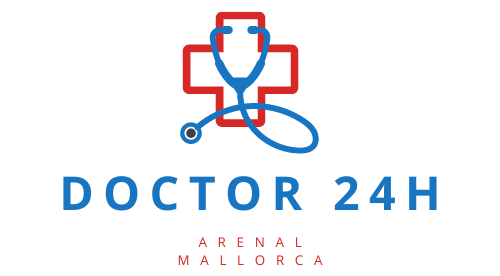Fainting, also known as syncope, is a temporary loss of consciousness that occurs when the brain isn’t receiving enough blood supply. It can be alarming, but it’s often a sign of a benign condition. However, it’s important to understand the fainting symptoms and what to do if you or someone else experiences an episode.
What Is Fainting?
——————
Fainting is the result of a sudden drop in blood flow to the brain, leading to a loss of consciousness. It can happen quickly and without warning, potentially leading to falls or injuries. It’s a common phenomenon that can affect individuals of all ages.
Although fainting episodes are generally short-lived, they can be indicative of more serious health issues, making it essential to seek medical attention after experiencing a fainting spell.
What Causes Fainting?
———————
Several factors can contribute to a fainting episode. Common triggers include standing up too quickly, which can cause a drop in blood pressure, dehydration, intense emotional stress, or overheating. Less common causes can include blood pressure medications, severe pain, or heart problems.
Heart issues, such as arrhythmias or structural heart disease, are particularly concerning causes of fainting and warrant immediate medical attention.
Understanding the underlying cause of a fainting episode is crucial for proper treatment and prevention of future occurrences.
What Are The Symptoms Of Fainting?
———————————-
Fainting symptoms can vary from person to person but commonly include dizziness, lightheadedness, nausea, and sweating. Some may experience blurred vision or a feeling of weakness before fainting.
It’s important to recognize fainting symptoms and what to do to mitigate the risks associated with a fall, such as lying down and elevating the legs to promote blood flow to the brain.
When Should I See My Doctor After Fainting?
——————————————-
Seeking medical advice after fainting is always recommended, especially if the episode is accompanied by chest pain, severe headache, shortness of breath, or irregular heartbeats. These symptoms could signal a more serious condition.
Even in the absence of these symptoms, scheduling a visit to your GP can help determine if the fainting was a one-time event or if it’s related to a chronic condition that needs management.
How Is Fainting Treated?
————————
Treatment for fainting depends on the identified cause. Measures may include medication adjustments, use of compression stockings, or recommending lifestyle changes like adequate hydration and avoiding prolonged standing.
In cases of heart-related causes, more specific treatments such as pacemakers or surgery could be necessary. Your doctor will guide the appropriate course of action based on individual circumstances.
Can Fainting Be Prevented?
————————–
Preventative measures for fainting focus on recognizing and avoiding triggers. Staying hydrated, avoiding standing for long periods, and getting up slowly from a lying or sitting position can help prevent fainting.
For those with diagnosed conditions like low blood pressure, managing those conditions effectively is key to preventing syncope. Engaging in leg exercises to promote blood circulation can also be helpful.
What To Do If Someone Faints?
——————————
If someone faints, it’s important to ensure they’re safe from injury. Lay the person flat on their back and elevate their legs to help restore blood flow to the brain. Check for breathing and responsiveness, and call for emergency assistance if necessary.
Do not try to revive them by slapping or shaking. Instead, give them space to recover and monitor their condition closely until help arrives or they regain consciousness.
Questions Related to Fainting Episodes
How Do You Deal With Faints?
When dealing with faints, it’s important to stay calm and ensure the person who has fainted is in a safe position. If you feel faint, lie down immediately and elevate your legs. This helps blood flow back to your brain.
If you’re with someone who faints, provide support to prevent falls, check for breathing, and seek medical help if the person doesn’t quickly regain consciousness.
What Not to Do When Someone Faints?
When someone faints, do not offer them food or drink as they may choke. It’s also important not to prop them up in a seated position, as this can continue to limit blood flow to the brain.
Avoid slapping or shaking the person to revive them. These actions can be harmful and ineffective. Instead, check for vital signs and provide a clear airway.
What Are Bad Signs After Fainting?
After someone faints, watch for signs of a more serious condition, such as irregular heartbeat, severe headache, chest pain, or difficulty breathing. Confusion or disorientation after regaining consciousness is also a red flag.
If any of these symptoms are present, or if the person has injured themselves during the fall, it’s critical to seek immediate medical attention.
Why Would I Suddenly Faint?
Sudden fainting can be caused by various triggers, including extreme stress, dehydration, sudden changes in posture, or heart conditions. Identifying the specific cause typically requires a medical evaluation.
Occasionally, fainting can be a sign of a more serious condition, so it’s important to discuss any episodes of fainting with your doctor.
Remember, if you experience fainting symptoms and what to do after isn’t clear, or if the fainting is recurrent, a visit to the clinic Doctor 24 Hours Arenal Mallorca is advised for a comprehensive check-up and peace of mind.

